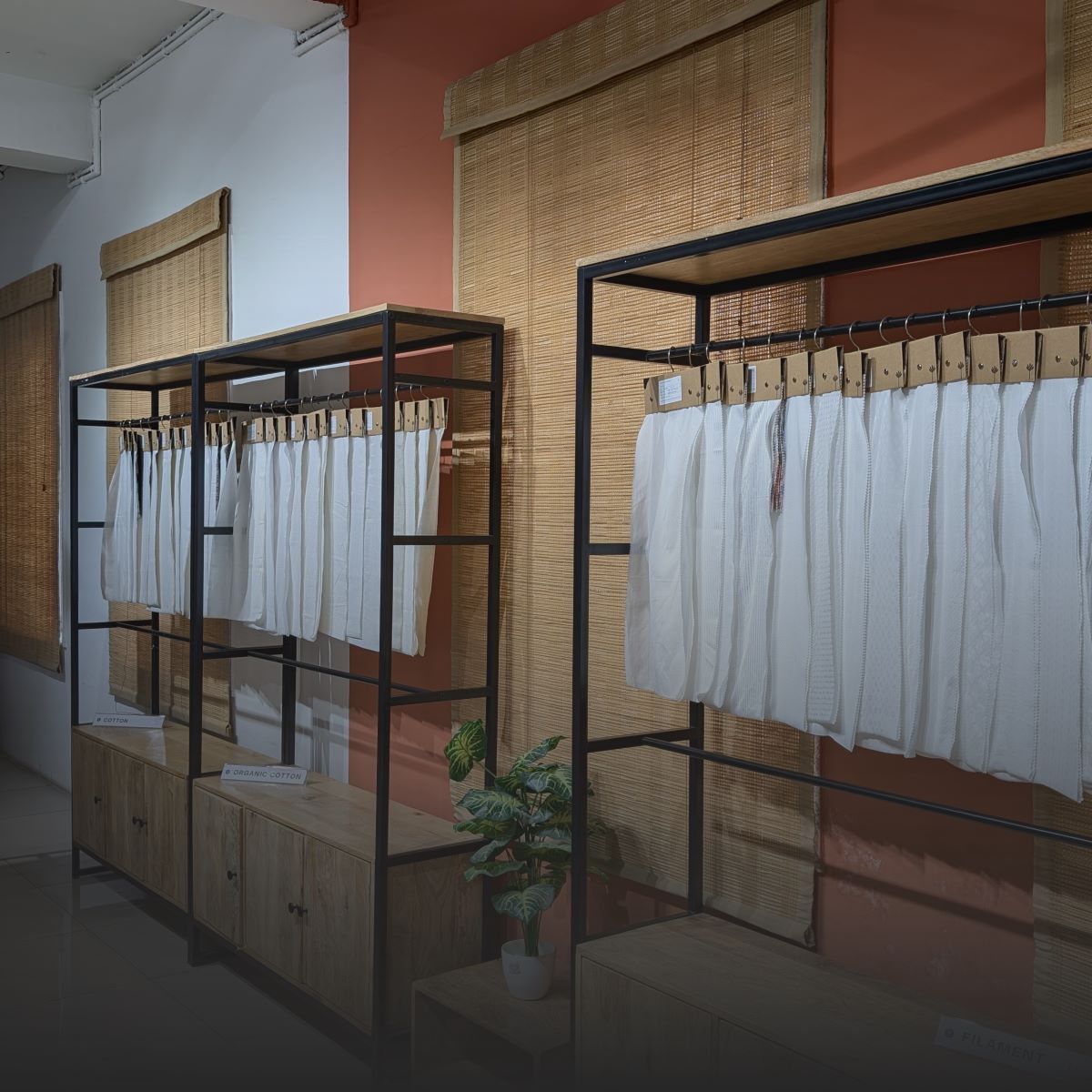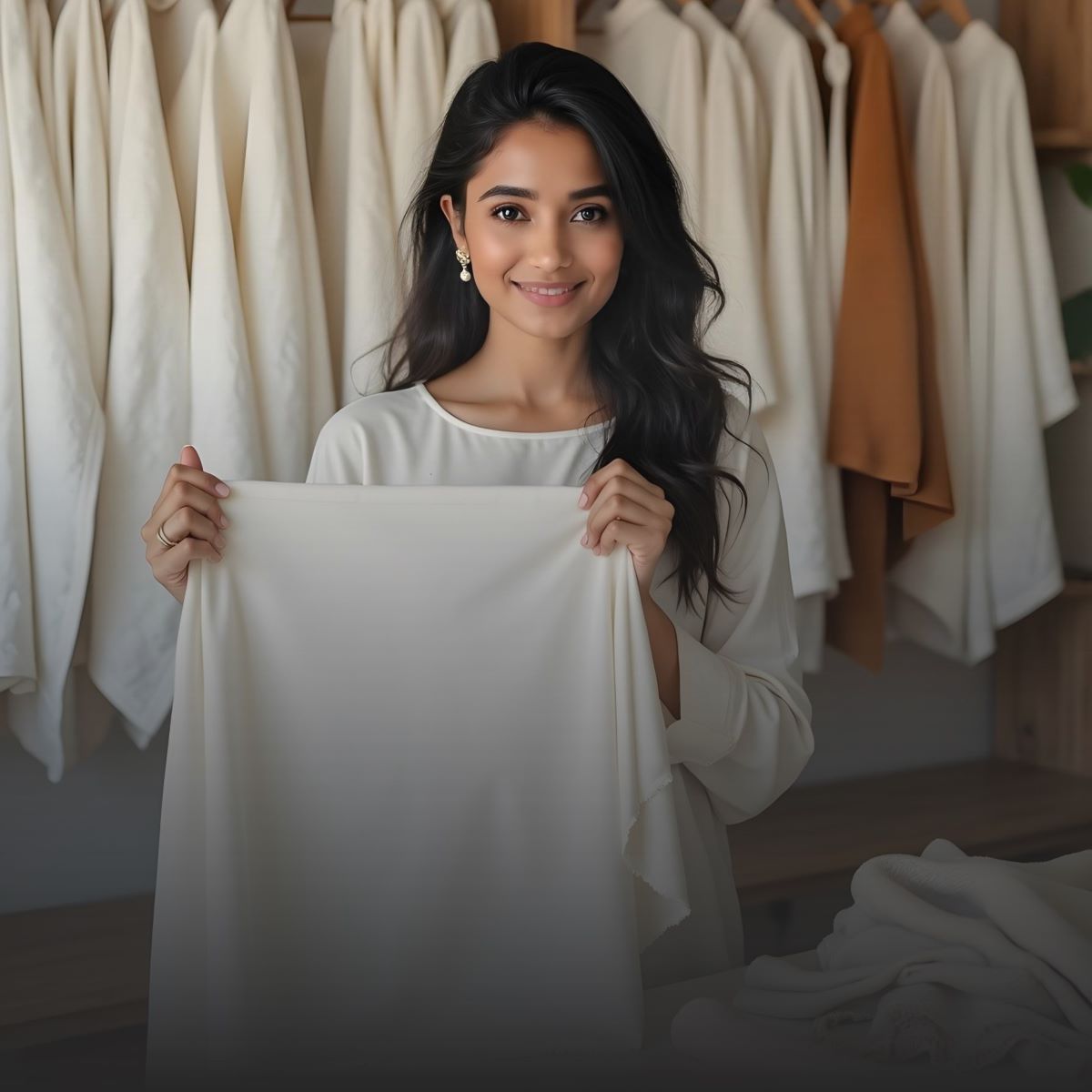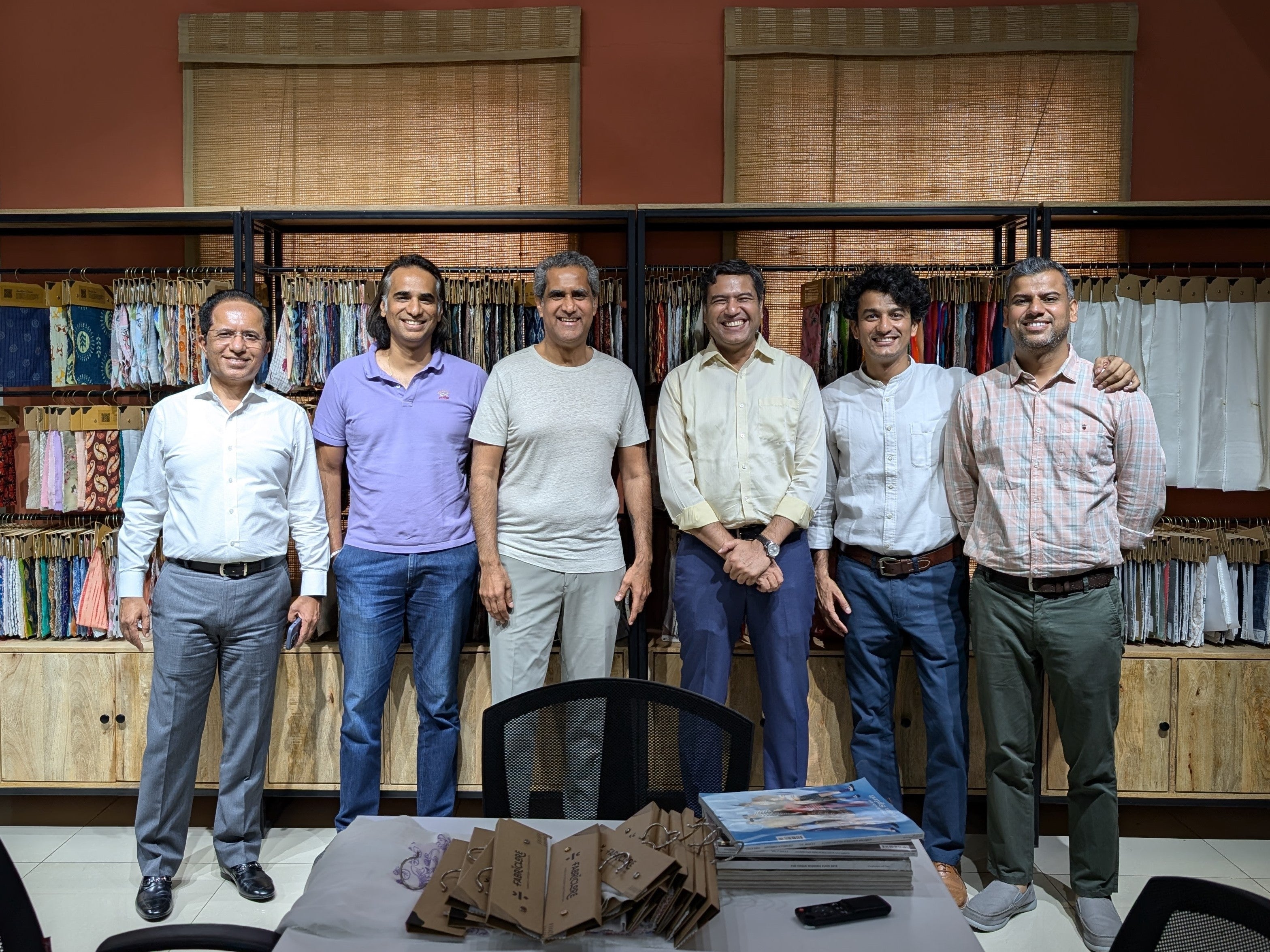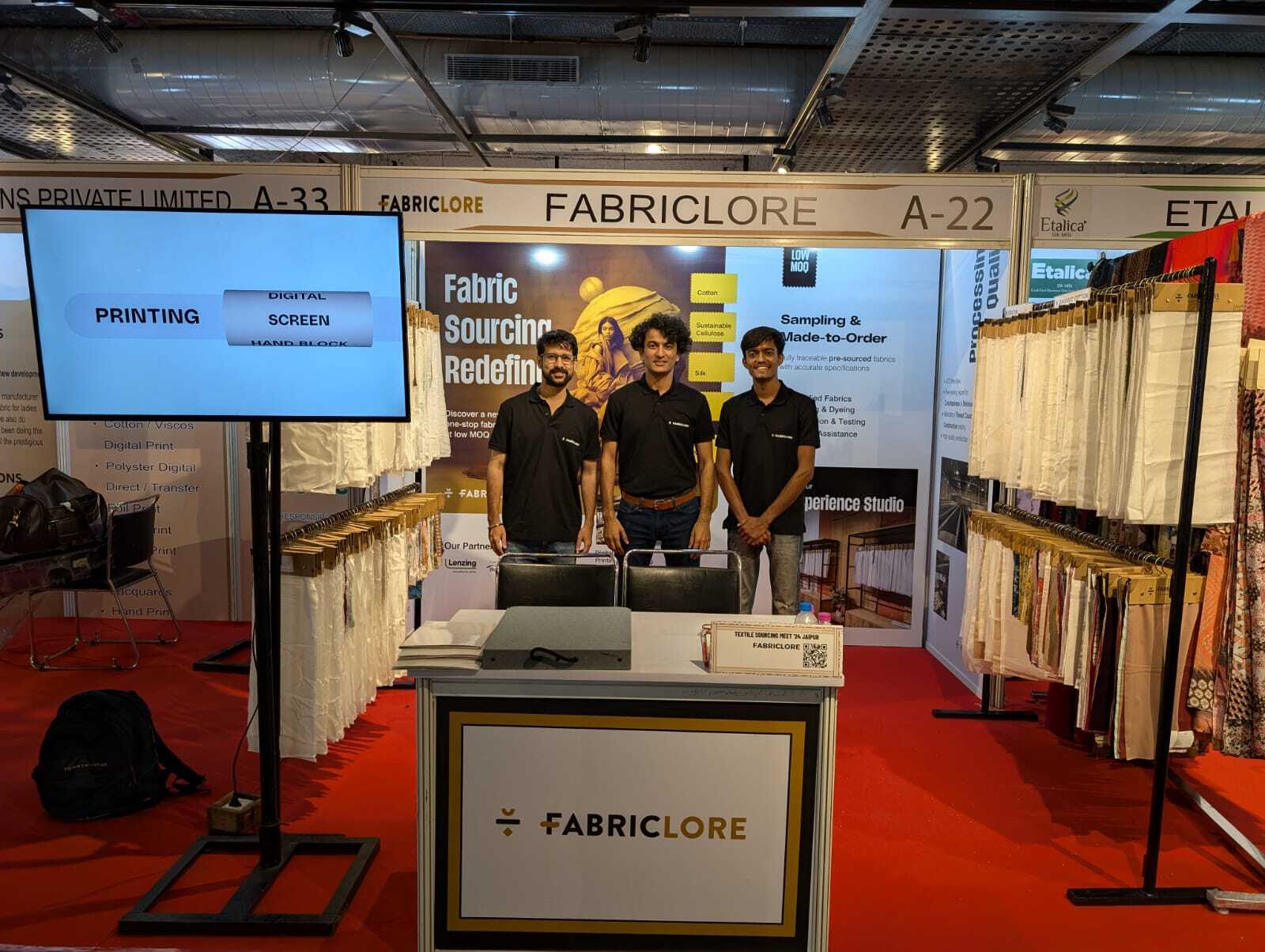With a recent funding round of $1.6 mn, the company plans to expand its product range, strengthen its tech platform, and increase its market presence both domestically and internationally.
Fabriclore, a Rajasthan-based startup founded by Vijay Sharma, Sandeep Sharma, and Anupam Arya, is transforming the way fashion brands source fabrics. With a focus on streamlining the complex supply chain, Fabriclore offers a one-stop platform for sourcing, designing, and processing fabrics. In an exclusive interview with Bizz Buzz, Anupam Arya discusses how Fabriclore is addressing the gap in the market for small and mid-sized fashion labels by providing access to diverse, high-quality fabrics with customizable options. The company’s unique blend of technology and deep textile expertise has enabled it to reduce delays and customer rejections, making it a preferred choice for fashion brands worldwide.
Please tell us about your company Fabriclore?
Fabriclore is a tech-enabled B2B fabric sourcing platform founded in 2016 in Rajasthan, India. We have built a one-stop fabric sourcing platform for fashion brands with widest pre-sourced fabrics, designing, processing and quality inspection all at one place. Since pivoting to B2B in 2023, we’ve onboarded over 400 private labels. The company aims to revolutionize fabric sourcing by making diverse, high-quality fabrics customizable and accessible to fashion brands of all sizes while supporting India’s rich textile heritage address the key gap in the market of small to mid-sized fashion labels globally.
How is your brand different from other market players and what is your unique value addition?
Fabriclore distinguishes itself through our integrated approach to fabric sourcing. We have deep textile expertise with tech enablement through the fabric value chain. Our platform provides access to over 300 fabric varieties from 50 mills, along with customization options and design assistance. We’ve implemented tech-driven processes that have reduced delays by 20 per cent and customer rejections by 33 per cent. Our unique value addition lies in our ability to offer high-quality, diverse fabrics with lower minimum order quantities, making us accessible to brands of all sizes. We also prioritize sustainability, promoting eco-friendly fabrics and practices. Essentially, we’re bridging the gap between the fragmented value chain of textile sourcing and emerging D2C fashion brands globally.
How is Fabriclore incorporating the use of tech for seamless operations, production, and other company processes?
At Fabriclore, technology is integral to our operations. We’ve developed a comprehensive digital platform that streamlines fabric sourcing, inventory management, and order processing that reduces customer rejections by 33 per cent. We use advanced analytics for trend prediction and offer additional value added services like virtual fabric visualization to enhance the customer experience. Our tailor made ERP connects all aspects of our operations, from warehouse to production, enabling real-time tracking and efficient management. In the next phase we will be automating the sourcing lifecycle of the customer with a cross platform app, making fabric sourcing a click away for global fashion brands.
When did the brand pivot into its B2B offerings and what led to this decision?
Fabriclore pivoted to a B2B model in 2023, a decision driven by our deep understanding of the textile industry and evolving market needs. During our seven years as a B2C online fabric retailer, we gained invaluable insights into fabric sourcing, customization, and quality control. We observed a growing demand from fashion brands for flexible, design-focused fabric sourcing solutions, especially with the surge of D2C brands in India and globally.
Can you talk about the recent round of funding raised and how is the company utilizing the funds raised to better the brand proposition and offerings?
Fabriclore recently raised $1.6 million in funding, led by Peer Capital, Bengaluru and Regal Fabrics from UAE, with participation from several other investors. We’re strategically utilizing these funds to expand our fabric range, upgrading our technology platform to improve production efficiency and time to delivery, and strengthening our quality control measures. We’re also investing in expanding our Fabric Experience Studio concept to other parts of India and UAE. Additionally, the funding will support our expansion into key international markets, including the Middle East, and Europe.
What is your global and domestic market presence and which are your busiest and most promising markets?
Fabriclore has established its strongest presence domestically. In India, our home market, we’ve built a robust network of partnerships with mills and fashion brands across major textile hubs. Our domestic operations span from traditional craft centres to modern fashion capitals, serving a diverse range of clients from emerging designers to established labels. Internationally, we’ve made significant inroads in the Middle East, particularly in the UAE and are now eyeing key markets of Europe.
What is your consumer growth story since inception?
Fabriclore’s consumer growth story is a testament to our pioneering spirit as entrepreneurs. We began in 2016 as India’s first B2C online fabric retailer, focusing on bringing high-quality, diverse fabrics directly to individual consumers and small-scale designers. At our peak, we shipped 8,000 orders per month entirely from our own website, adding over 3,00,000 customers during our B2C business. This phase allowed us to build a strong foundation in fabric sourcing and understanding customer preferences.
Please share a break up of your B2B and B2C offerings and how do both the segments contribute?
We are an entirely B2B company now focused on simplifying fabric sourcing for fashion brands using technology.
How was the Shark Tank experience and compare it to raising money the traditional way without the studio lights and without the cameras on?
Lights, camera, fundraising! Our Shark Tank dive came after we have already swam in the traditional funding pool and pivoted to B2B. Initially, we thought Shark Tank was too small a pond for our big fish ideas. But the show’s team was persistent, and we saw it as a chance to make a splash in front of a wider audience. Prepping for Shark Tank was like speed-dating with our business model. In just three days, we had to strip down our tech-heavy pitch to its bare essentials, making it digestible for the average viewer. This crash course in simplification was an unexpected gem, polishing our pitch for future investor meetings. While Shark Tank was a thrilling ride, for a mature business like ours, the traditional funding route is more our speed.
Share with us your business growth projections and future expectations?
We project a significant expansion of our business over the next three years. In the short term, we aim to triple our Monthly Recurring Revenue (MRR) within the next 12 months. We expect to increase our annual fabric supply to fashion brands globally, targeting 40 lakh metres of made-to-order fabrics within the next 3 fiscal years. This projection is supported by our expansion plans in both domestic and international markets, particularly in the Middle East, Europe, and the USA. Our client base is set to grow substantially. We’re targeting to onboard another 500 fashion brands within the next 18 months, leveraging our new fabric experience studios in key fashion hubs. Looking further ahead, we anticipate a 10x growth in revenue over the next three years.
What are your expansion plan looking like?
Fabriclore’s expansion plans are threefold, weaving together product innovation, technological advancement, and market growth. First, we’re enriching our portfolio by adding premium knitted fabrics to our portfolio, offering designers a wider range of textures and possibilities. Second, we’re upgrading our technological infrastructure, enhancing both our internal operations and customer experience. Our focus is on streamlining the entire customer lifecycle, from sourcing to delivery, with smart, AI-driven solutions. Finally, we’re stretching our reach across India and beyond. We’re replicating our successful Fabric Experience Studio model in key fashion hubs, bringing our tactile showcase to designer’s doorsteps. This expansion, both domestic and international, aims to make Fabriclore the thread that connects global fashion, one swatch at a time.
How big is the market for textile supply chain sourcing?
India’s total textile market is about $165 billion, out of which only domestic fabric sourcing in the wearable fabrics segment is about $20 billion. Within this large pool of fabric sourcing market, Fabriclore is focussed on small to mid-sized private labels.
Is the supply chain issue a thing of the past?
Oh…absolutely not. The fabric industry is way wider and deeper than people think. You see that even the minutest of change in the fibre composition of a fabric makes it unique and there are hundreds of specialist mills producing an indefinite variety of fabrics every season. Then comes the processing part which is still largely unorganised and fragmented and to top it all, quality is still an Achilles heel. Fabriclore is addressing a much larger problem but the road ahead is long before the industry gets organised.
Do you incorporate the latest technologies like AI in your solutions?
Yes…we are at present limited generative AI in print development but as we move forward to developing design/collection management tools for fashion brands, AI will have a crucial role to play. Our aim is to streamline collection development management as much as possible right from mood boarding to fabric sourcing and collaboration. We will also be forging partnership to leverage more evolved AI technologies.
Source: https://www.bizzbuzz.news/bizz-talk/how-fabriclore-empowering-fashion-brands-with-seamless-fabric-sourcing-1333950?infinitescroll=1






Leave a comment
This site is protected by hCaptcha and the hCaptcha Privacy Policy and Terms of Service apply.